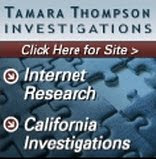Department of Homeland Security Non-Disclosure Agreement is inspecific in its characterization of material, the disclosure of which could subject the signatory to criminal penalties.
"As used in this Agreement, sensitive but unclassified information is an over-arching term that covers any information, not otherwise indicated above, which the loss of, misuse of, or unauthorized access to or modification of could adversely affect the national interest or the conduct of Federal programs, or the privacy to which individuals are entitled under Section 552a of Title 5..."
This was the topic of the moment by former Washington Post investigative reporter Scott Armstrong when he spoke at the California First Amendment Coalition annual gathering.
[Read the article [Bypass reg.: ajacks@melee.com/ajacks5]Armstrong railed against the U.S. Department of Homeland Security's new nondisclosure agreement, which is so ambiguously written, it can be construed to cover, well, just about anything.
The agreement restricts use of what the government calls "sensitive but unclassified information" by all officials, employees, contractors, subcontractors or people asked by the department to sign it.
That means that officials receiving homeland security grants or disaster preparedness information could be asked to sign the agreement requiring them not speak about what they know.
Police chiefs. Fire chiefs. City managers. Disaster planners. Officials of levee districts. They could all be prohibited from discussing even the most innocuous information, such as how a city will respond to a flood or major fire.
[Technorati tags: public records homeland security]




